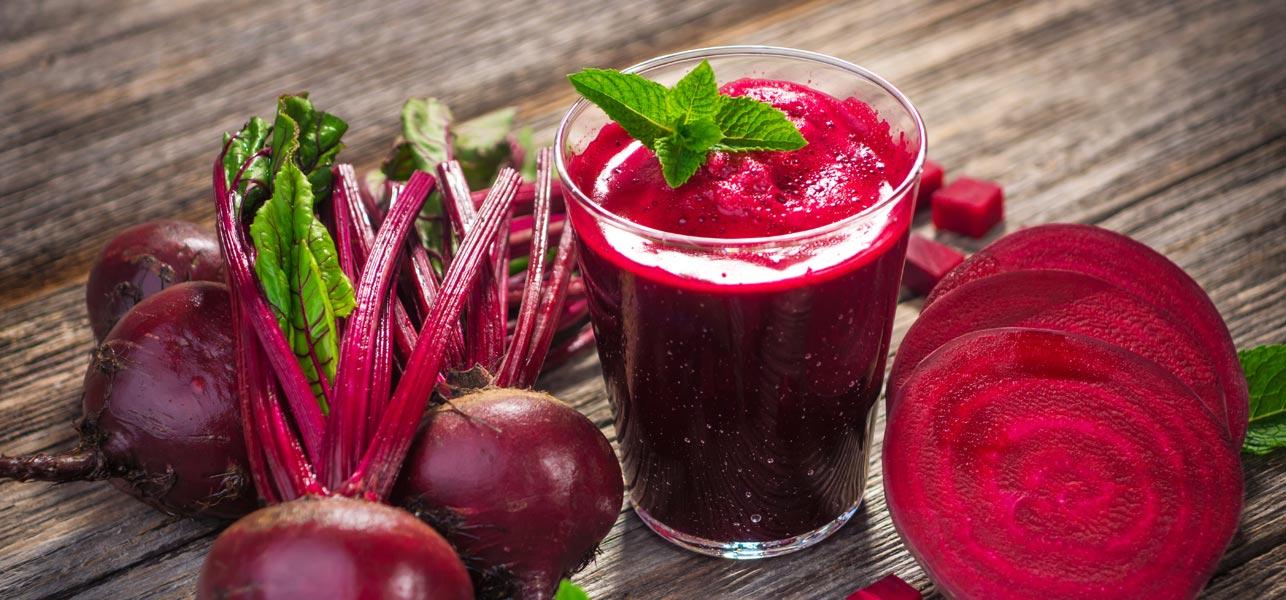Beetroot
November is the season for beetroot, this beautiful sweet and earthy tasting vegetable is cheap and comes with a whole lot of health giving benefits.
Beetroot is up to ten percent sugar but, with a low glycaemic index it means the sugar is released into the blood stream slowly, helping to maintain blood sugar levels. The velvety texture and beautiful vivid colour makes beetroot a must for any meal.
Historically, the root was carrot shaped, and much like carrots the beet was grown for its leaves. In modern times it has been predominately eaten in its pickled form, saturated in strong vinegar, which has either attracted or repelled its audience.
If the latter is the case, you should take a second look at this beautiful, delicious vegetable.
Beetroot has excellent anti-inflammatory and anti-oxidant properties and this is due in part to it unique concentration of phytonutrients called Betalains. Beets rich red colour can tinge the colour of urine to a pink, whilst this does not cause any health problems, it may represent that the individual may have problems with iron storage in their body. If this is seen, it may be worth chatting to your doctor for further advice.
The pigments in beetroot come from Betanin, these pigments are attracting attention in the science world for their ability to reduce tumour cell growth, the cancers which obtain the greatest benefit from betanin are colon, stomach, prostate, testicular, breast and nerve.
Antioxidants
Red fruits and vegetables get their colour from anthocyanins, but beets get their colour from the pigment betalain, which is rich in antioxidants. Antioxidants help to protect against the cell damage from free radicals, which leads to diseases such as heart disease, neurological dysfunction and cancer.
Anti-inflammatory
The phytonutrients found in beetroot act as anti-inflammatory compounds. They reduce inflammation by inhibiting the enzymes that trigger inflammation, short term inflammation is beneficial for the body however, chronic inflammation can lead to artherosclerosis and heart disease.
Beets are also a great source of betaine, which is a derivative of the vitamin Choline. This vitamin is beneficial for regulating inflammation in the cardiovascular system. Which makes beetroots excellent for heart and vascular health.
Blood pressure
The betalain pigment in beetroot is high in levels of nitrate. This nitrate gets converted into active nitrate and nitric oxide, these two elements help to relax and dilate blood vessels, leading to a lowering of blood pressure.
What is in it?
Lets take a closer look at some of the vitamins and minerals
Folate - Vitamin
- Promotes brain development and improves functioning
- Promotes a healthy nervous system function
- Decreases risk of some cancers, including breast
- Supports a healthy cardiovascular system
- Helps nervous system development in the fetus
- Assists in the production of red blood cells
- May reduce the risk of depression
Manganese - Mineral- Supports the formation of healthy bones through absorption of calcium
- Supports collagen production
- Helps with blood sugar control
- Contributes to the prevention of oxygen related damage and damage from ultraviolet (UV) light
- Antioxidant, fights free radical damage. Diets low in Manganese have been linked to skin problems and asthma
- Proper functioning of the thyroid gland
- Promotes metabolism of fats and carbohydrates
Vitamin C- Supports the immune system
- Increases iron absoption
- Protects cells from oxidating damage
- Helps reduce the risk of heart disease, including coronary heart disease and stroke
- Helps in the formation of collagen, carnitine and catecholamines
Tryptophan - An essential amino acid
- Essential in maintaining Serotonin, 'The happy hormone'
- Improves sleep quality
- Helps manage depression
- Depletion can lead to mood changes, impaired memory, anxiety, aggressive behaviour and stress
Magnesium - Mineral
- Helps protein synthesis
- Supports the nervous system
- Improves cellular metabolism
- Regulates heart rhythm
- Reduces the risk of osteoporosis
- Reduces eclamptic seizures
- Helps with muscle relaxation
- Assists with bone and teeth formation
- Regulates the body's use of calcium and other minerals
- Helps maintain structural health of cell membranes
- Reduces the risk of type two diabetes
- Reduces the symptoms of asthma





 Organically Pure
Organically Pure 
 Reply With Quote
Reply With Quote



